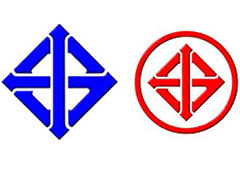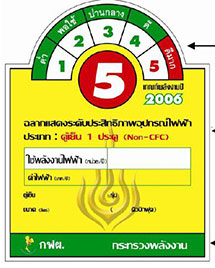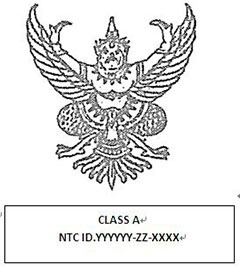Thailand Certification
TISI Certification
Certification Introduction
Thailand implements a TISI certification system that combines mandatory and voluntary certification. For products that meet the standards, the use of the TISI mark is allowed, and for products that have not been developed standards, TISI also implements product registration as a temporary means of certification.
The Thai government requires the implementation of mandatory certification of products in 60 major categories, covering eight areas, including: electrical equipment and accessories, medical equipment, construction materials, consumer goods, vehicles, PVC pipes, LPG gas containers and agricultural products. In addition, the certification of other categories of products are voluntary certification. Voluntary certification can only be applied for by local manufacturers.
The Thai Industrial Standards Institute (TISI) is authorized by the Industrial Products Standards Act to be responsible for certification in Thailand, and is the governmental authority for mandatory certification in Thailand, as well as the standards development and management body, the certification body, and the laboratory accreditation, personnel training and registration body. It is important to note that there is no non-government mandatory certification body in Thailand.
Product Scope
For electrical and electronic products, TISI certification covers a total of 42 categories, only some of which are listed below.
TIS 4 Part 1-2529 (1986) Incandescent lamps May 1, 1987
TIS 23-2521 (1978) Ballast Fluorescent Lamps April 1, 1979
TIS 344-2549 (2006) Tubular Fluorescent Lamps and Starter Standoffs July 13, 2008
TIS 366-2547 (2004) Irons: Safety Requirements December 26, 2005
TIS 934-2533 (1990) A.C. Electric Fans: Safety Requirements December 25, 1991
TIS 956-2533 (1990) Fluorescent Lamps: Safety Requirements September 25, 1991
TIS 1039-2547 (2004) Electric Rice Cookers: Safety Requirements February 21, 2006
TIS 1389-2539 (1996) Tumble Dryers: Safety Requirements March 23, 2002
TIS 1462-2548 (2005) Household Washing Machines August 21, 2007
TIS 1509-2547 (2004) Electric Fryers: Safety Requirements April 27, 2006
TIS 1693-2547 (2004) Instantaneous Water Heaters: Safety Requirements April 23, 2006
TIS 1773-2548 (2005) Microwave Oven Safety Requirements: August 21, 2007
TIS 1955-2542 (1999) Lighting and Similar Equipment: Radio Interference LimitsAugust 11, 2002
TIS 1985-2549 (2006) Skin or Hair Care Equipment: Safety Requirements July 14, 2008
TIS 2134-2545 (2002) Environmental Requirements for Energy Efficiency in Air Conditioning March 11, 2005
TIS 2186-2547 (2004) Household Refrigerators: Environmental Requirements: Energy Conservation December 23, 2006
Note: Please refer to the list of mandatory products for details.
Application process
1. Customer prepares samples and submits information to Waltek
2. Waltek submits the samples and information to the partner laboratory in Thailand for testing
3. Experiment for testing and factory inspection at the same time
4. After the test and factory inspection are passed, TISI issues the certificate
Certification Mark

Other information
Technical information: voltage frequency AC 220V/50Hz, plug TIS 166-2549
Whether mandatory: mandatory + voluntary
Certificate validity: 3 years valid
Factory inspection requirements: the need for the first factory inspection and annual audit
Licensee requirements: need to be a local registered company or local agent to hold the certificate
Energy Label
Introduction to Certification
The regulatory bodies for energy efficiency in Thailand include the Electricity Generating Authority of Thailand (EGAT) and the Department of Alternative Energy Development and Efficiency (DEDE). The product range
Product range
Covering 16 products, including: air conditioners, washing machines, refrigerators, ballasts, fans, rice cookers, lamps, electric kettles, etc.
Application Process
1、Customers prepare samples and documents, and submit the application to Waltek.
2. Waltek submits the samples to the laboratory for testing, and then submits them to the issuing agency for certification after the test is completed.
3. The issuing organization reviews the report and issues the energy efficiency certificate.
Marking requirements

Other information
Technical information: voltage frequency AC 220V/50Hz, plug TIS 166-2549
Whether mandatory: mandatory + voluntary
Certificate validity: 3 years valid
Factory inspection requirements: No requirements
Licensee requirements: need to be a local registered company or local agent to hold the certificate
NTC Wireless Certification
Certification Introduction
The National Telecommunication Commission of Thailand (NTC) is the regulatory body for wireless and telecommunications in Thailand and all wireless and telecommunications products must be licensed by the NTC before entering the market. A locally registered company is required to be a NTC licensee and provide a supplier code. According to the product categories are divided into 3 certification models.
1.A mode (Class A Approval): Products must be tested in the NTC designated laboratory and provide the data required by the NTC to obtain the registration number and certification.
2.B mode (Class B Approval): The certification procedure is the same as Class A product category, except that foreign reports such as FCC, R&TTE can be used to apply for certification in the transfer mode, and the registration number and certification certificate must be obtained.
3.SDoC Declaration of Conformity (Supplier's Declaration of Conformity): This part of the product certification for the voluntary mode, must be filled out by the customer's local representative in Thailand SDoC form and sent to NTC for review, along with technical documents.
Product Scope
All wireless and telecommunication products
Application process
1. Customer prepares samples and information and submits the application to Waltek
2. Waltek will conduct the test and issue the test report after the test is completed
3. NTC review the documents and issue the certificate after there is no problem
4. Importers to affix the NTC logo
Labeling requirements

Other information
Technical information: voltage frequency AC 220V/50Hz, plug TIS 166-2549
Whether mandatory: mandatory
Certificate validity: No validity
Factory inspection requirements: No requirements
Licensee requirements: need to be a local registered company or local agent to hold the certificate


 Telephone
Telephone  Contact
Contact